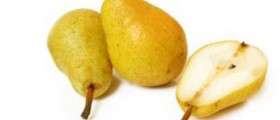
The Mediterranean diet is one of the most popular diet regimes among health enthusiasts and people who want to lose weight. This diet, which also aims to prevent a number of serious diseases, contains many elements, and oranges are one of the most important ones.
What is the Mediterranean diet?
The Mediterranean diet is today considered to be one of the healthiest diet choices in the world. It was observed long time ago that people in the Mediterranean region, especially in the coastal regions of Southern Italy and Greek islands, suffer less frequently from obesity, hypertension, diabetes and other health problems.
This diet includes ample amounts of plant-based foods, lots of fresh fruit for dessert, olive and other vegetable oils instead of butter and lard, plenty of seeds and nuts, fish, cheese and yogurt fish and only low amounts of red meat and eggs. It also includes a glass or two of wine with meals.
Oranges, which are an important part of the diet in those regions, are very beneficial for the health.
Oranges and vitamins
Oranges are an excellent source of vitamin C. This vitamin is one of the most potent natural antioxidants. It prevents oxidation of cholesterol, protecting the arteries and preventing diseases like heart attack and stroke. It also helps recycle vitamin E, another powerful antioxidant.
Oranges also contain great amounts of folate, a vitamin of the B complex. One role of this vitamin is to process the amino acid called homocysteine, which, unless processed, accumulates and becomes potentially toxic.
Oranges and minerals
Oranges also offer large amounts of important minerals. They contain potassium, important for proper heart and muscle functioning. They are also a good natural source of calcium, which is essential for proper bone development. Calcium also plays an important role in maintaining normal heart function.
Another mineral found in oranges is magnesium, which participates in more than 300 processes and reactions in the body.
Oranges and phytochemicals
Phytochemicals are chemicals found in plants that protect them against infections and other problems. Phytochemicals are also very useful for the human health.
Oranges contain several important phytochemicals, namely Flavonones, anthoctanins, hydroxycinnamic acids and polyphenols. They protect the body from inflammation, from oxidation caused by free radicals, they also prevent blood clotting and regulate the blood pressure.
Oranges and fiber
Everyone knows that dietary fiber is very important for proper functioning of the digestive tract and for the overall health as well. Oranges contain about three grams of both soluble and insoluble fiber, and both kinds are very beneficial for the health. Pectin, a dietary fiber found in the thin white skin that divides an orange into sections, is particularly useful for people who have problems with cholesterol.

















Your thoughts on this
Loading...